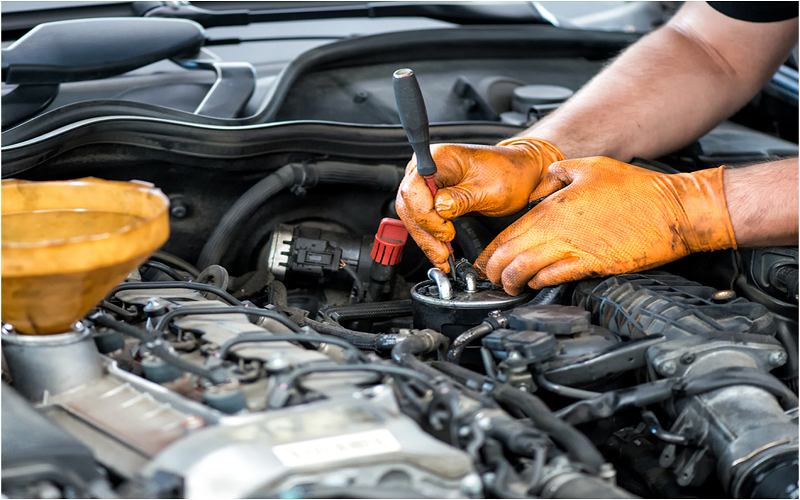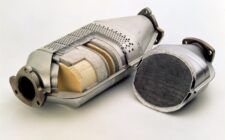Diesel engines tend to have a bad reputation among everyday drivers, but these vehicles aren’t limited to 18-wheel trucks. They encompass a wide range of styles and models with varying efficiency rates. In fact, seven out of ten Americans have never driven a diesel, including 75% of millennials. So, what’s contributing to their bias against diesels? Here are five common misconceptions associated with diesel engines that no longer hold by today’s standards:
Myth #1: Diesel Vehicles Are Less Efficient Than Gas Cars
Some diesel vehicles have lower mpg ratings than gas cars because diesel engines are often larger and capable of more power. However, they are more fuel-efficient than gas cars on the highway. Diesel fuel also packs more power into each gallon than unleaded. You would need more gas and a much larger engine to produce the same power as a diesel engine, with an 8-liter gas engine rivaling the output of a 6-liter diesel engine.
Today’s diesel cars, including those made in Europe, get more mpg than most cars, with some models fetching 50 mpg or more. Diesel engines need regular maintenance to reach peak efficiency, especially older models with 100,000 miles or more. The engine needs a constant supply of high-quality oil to pressure the fuel into a fine mist. Replace dirty or clogged fuel injectors to get the most bang for your buck at the pump.

Source: Sue Thatcher/Shutterstock.com
Myth #2: Diesel Vehicles Are Harder to Maintain Than Gas Cars
Many diesel aficionados and truck drivers like to talk shop, but that doesn’t mean that diesels need more repairs than gas cars. However, they need regular oil changes and fluid checks. Fuel efficiency can plummet when there’s a problem with the oil or fuel system, so it’s best to get ahead of it. Preventative maintenance tends to be top of mind for most drivers. A simple problem will spread to other systems, leading to costly repairs.
When you bring your engine in for repairs, the mechanic can access it faster than they would with a gas vehicle, reducing labor costs. There are also fewer varieties of diesel makes and models on the market, so mechanics tend to be more knowledgeable about the cars they service.
In reality, diesel vehicles have fewer parts than their gas counterparts, which makes them easier to maintain. You need to pay closer attention to your fluid levels with diesel, but you shouldn’t have to make significant repairs for the first 100,000 miles or more. Shop for diesel parts by make and model to replace aging components before they affect fuel consumption or damage other parts.
Myth #3: Diesel Vehicles Are Loud
If you’ve ever been behind the wheel of a rancorous engine, you know how loud it can be. Older models used direct injection, spraying fuel directly into the combustion chamber, which produced loud popping and hissing sounds.
However, most modern diesel engines now use common rail injection to reduce engine noises. This system uses electronic sensors to control the timing and amount of fuel being injected into the chamber. Common rail is quieter and more precise than direct injection, improving fuel efficiency.
A strange sound usually means something is wrong. The injectors could be clogged, the sensors may be malfunctioning or the engine may be leaking oil. Replace the valve gasket cover to keep oil sealed in the cylinder head to maintain fuel pressure.

Source: Photology1971/Shutterstock.com
Myth #4: Diesel Vehicles Are More Expensive Than Gas Cars
Head to your local car dealer, and it’s clear that diesel vehicles regularly cost more upfront than gas vehicles. But diesel vehicles make for a wiser investment because they run for a million miles or more with proper maintenance. Meanwhile, gas cars only last around 250,000 miles. They are designed to be replaced every five to ten years, while diesel trucks can easily last a lifetime, giving them a higher resale value. If you drive a diesel vehicle 10,000 miles or more per year, the money you will save on fuel and repairs makes the added price tag more than worth it.
Myth #5: Diesel Vehicles Have Trouble Starting in the Winter
All internal combustion engines are sensitive to temperature, but diesel fuel can gel in the winter, and the oil becomes less viscous, leading to longer, harder start times. However, the market has innovated solutions to these common problems. Most models include or can be purchased with engine block heaters that insulate the internal components from low temperatures. Fuel stations automatically swap out No.2 diesel for No.1, which is more volatile and easier to burn.
Warming up the engine for a few minutes gives oil time to circulate through the engine. This also prevents the fuel from gelling after being left out in the cold. You should check the battery or plug it into a warming terminal to avoid losing power, but that applies to any engine.
In Conclusion
Diesel engines have changed dramatically over the last decade, thanks to new efficiency standards, innovative technologies and fuel-conscious consumers who want to limit their impact on the environment. They are not the loud, heavy fuel-guzzling beasts of your parent’s generation. Don’t let these myths sour your impression of diesel vehicles.




